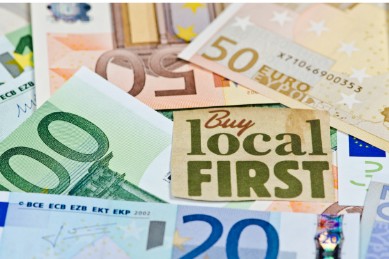Consumer Awareness:
How to make consumers aware of the benefits of buying 'Belgian'
Monday 26 august 2024
In a globalized economic context, where consumers have access to an infinite range of products from all over the world, it becomes crucial to promote the benefits of buying locally. This article explores effective strategies to raise awareness among consumers about the benefits of supporting Belgian companies, highlighting the economic, environmental, and social aspects of this approach.
The economic benefits of buying locally
Buying Belgian offers many economic benefits for the country. Buying products made in Belgium or Europe stimulates the economy by promoting job creation and supporting local businesses. According to a study by the Belgian Enterprise Federation (FEB), each euro spent in a local company generates approximately €1.50 of added value for the national economy.
Furthermore, supporting Belgian companies keeps money in the community, thus promoting a circular economy. Profits remain largely within the country, contributing to economic growth and funding public services, such as social security, education and infrastructure.
Success stories: Belgian case studies
To illustrate the positive impact of buying local, it is useful to present concrete examples. For example, the Belgian clothing brand 'Stromae' has highlighted local production as a point of differentiation. By integrating sustainable production practices and manufacturing its products in Belgium and Europe, it has attracted the attention of consumers who are concerned about the environmental impact of their purchases.
Similarly, some initiatives in the FOOD sector have successfully promoted Belgian food products by highlighting the quality and freshness of local products, leading to a 15% increase in sales of local products in partner supermarkets.
Environmental impact: Reducing the carbon footprint
The environmental benefits of buying local are also significant. By reducing transport distances, consumers reduce the carbon footprint associated with transporting goods. Local products generate on average 50% less CO2 emissions than imported products due to shorter journeys, the difference is even greater compared to products imported by plane from the other side of the world.
In addition, local products are often subject to stricter environmental regulations, which can ensure more sustainable practices. Climate-conscious consumers are therefore encouraged to favor Belgian and European products to minimize their environmental impact.
Social impact and community support
Buying Belgian also contributes to social cohesion by supporting small and medium-sized enterprises that are often at the heart of local communities. These companies play a crucial role in preserving the social fabric, creating local jobs and supporting community initiatives.
A report by the Centre d'Études de la Consommation (CEC) indicates that local businesses are responsible for 70% of jobs in small towns and villages, strengthening the social fabric and helping to reduce economic disparities between urban and rural areas.
Consumer education: Strategies and tools
To raise awareness among consumers about the benefits of buying Belgian, it is essential to implement effective awareness campaigns, such as:
• Awareness campaigns: Use traditional (television, radio, press) and digital (social networks, blogs) media to inform consumers about the economic, environmental and social benefits of buying local. For example, the promotion of the platform ‘Les eshops belges' during the COVID crisis helped raise awareness among 30% of the Belgian population about the benefits of supporting local businesses.
• 'Belgian Product' label: Create or promote a label certifying products made in Belgium. This label can help consumers easily identify local products and make more informed choices. Some labels such as 'Belgian Artisan' have increased this recognition.
• School education: Integrate modules on responsible consumption and the benefits of buying local into school curricula to educate younger generations from an early age. Initiatives such as awareness-raising programs in partnership with schools, such as the 'Eco-School' project of the Wallonia-Brussels Federation, have shown positive results in raising awareness among young people.
Educating consumers on the benefits of buying Belgian is essential to support the national economy, reduce environmental impact, and strengthen social cohesion. By implementing effective awareness-raising strategies, using labels to identify local products, and integrating responsible consumption education into school curricula, it is possible to promote a more sustainable and prosperous future for Belgium. Success stories show that this approach can have a tangible impact, and it is now time to multiply these efforts to maximize the benefits for the community and the environment.
Return









